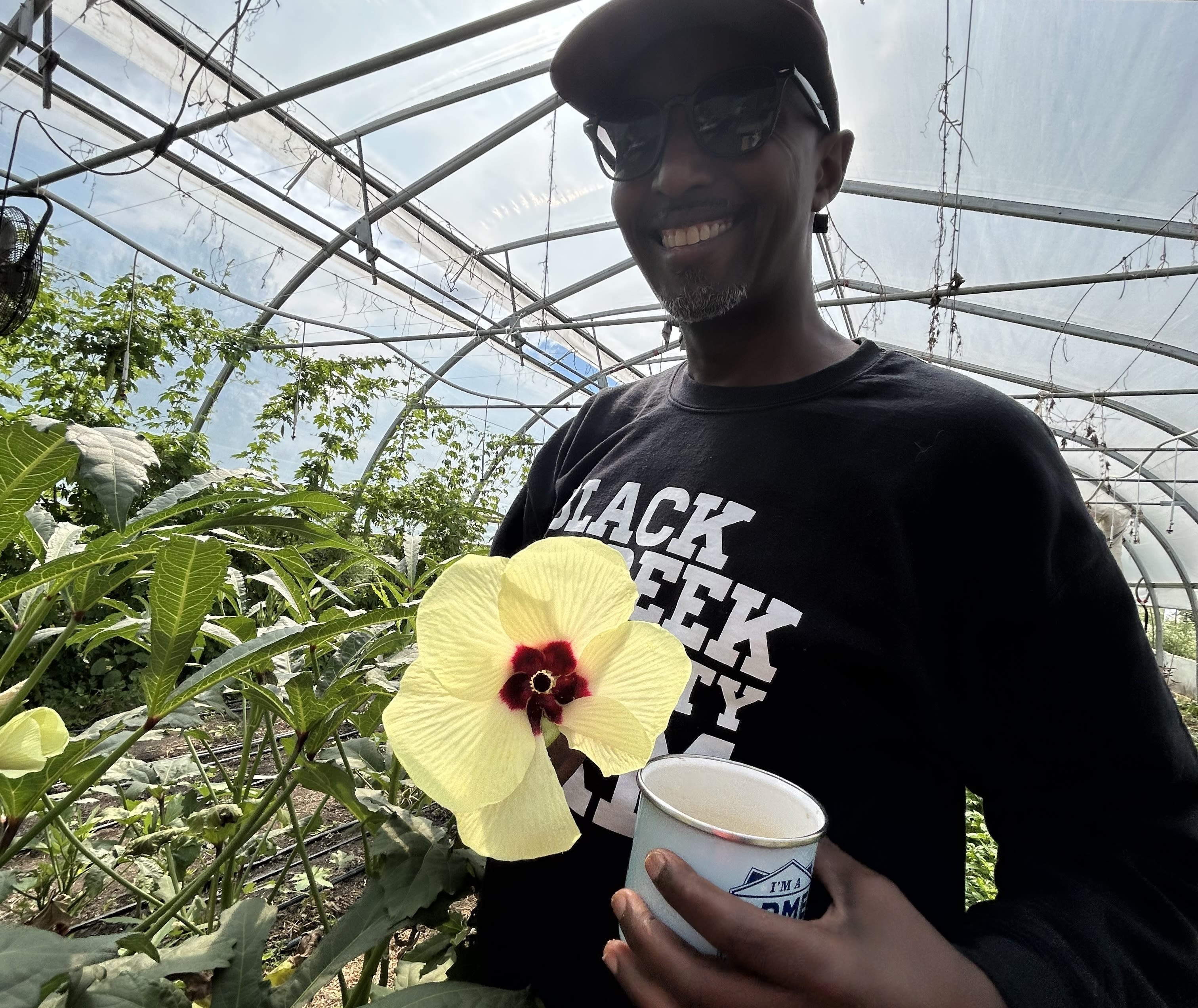Urban Harvest
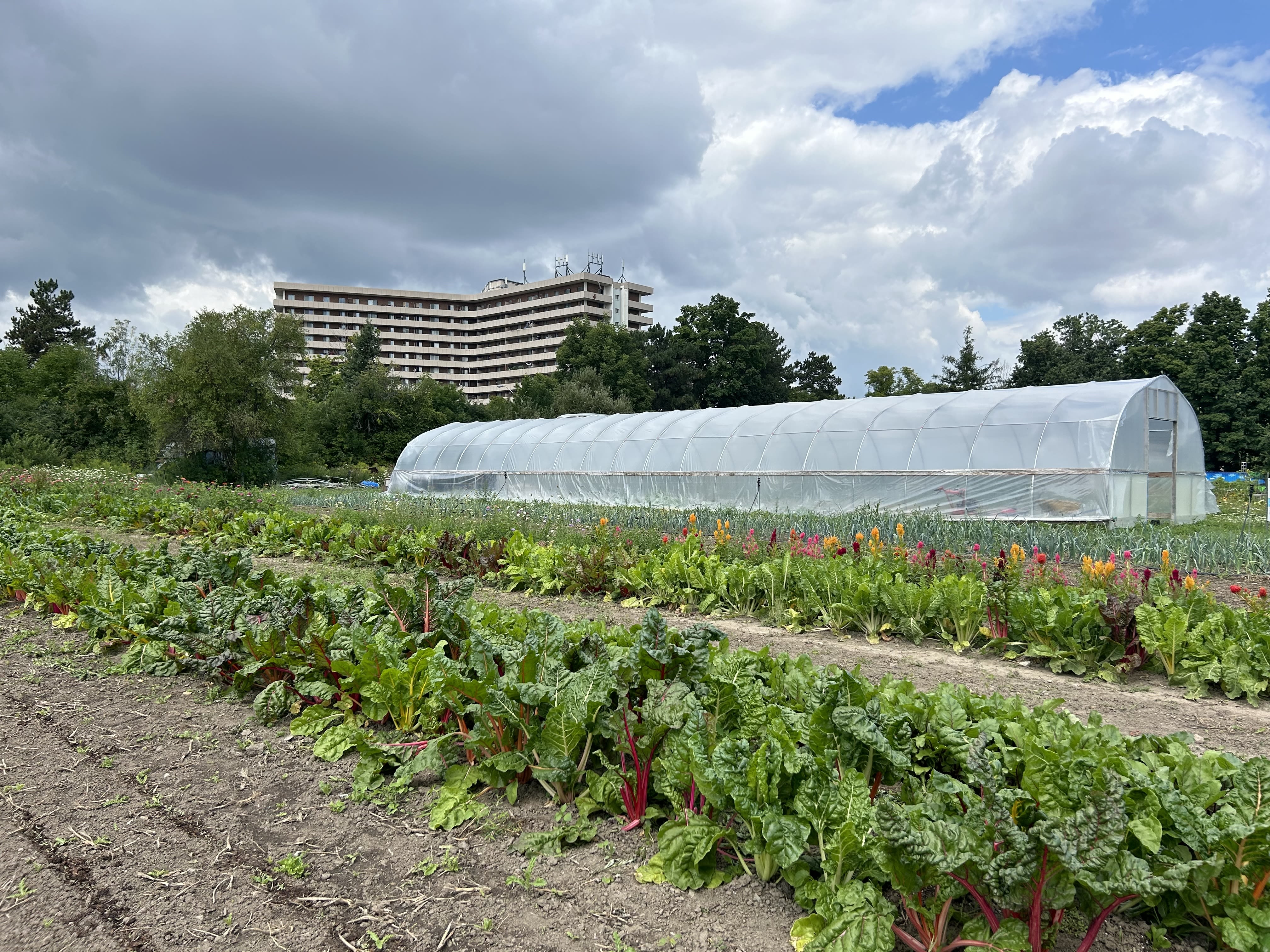
Cultivating food with purpose
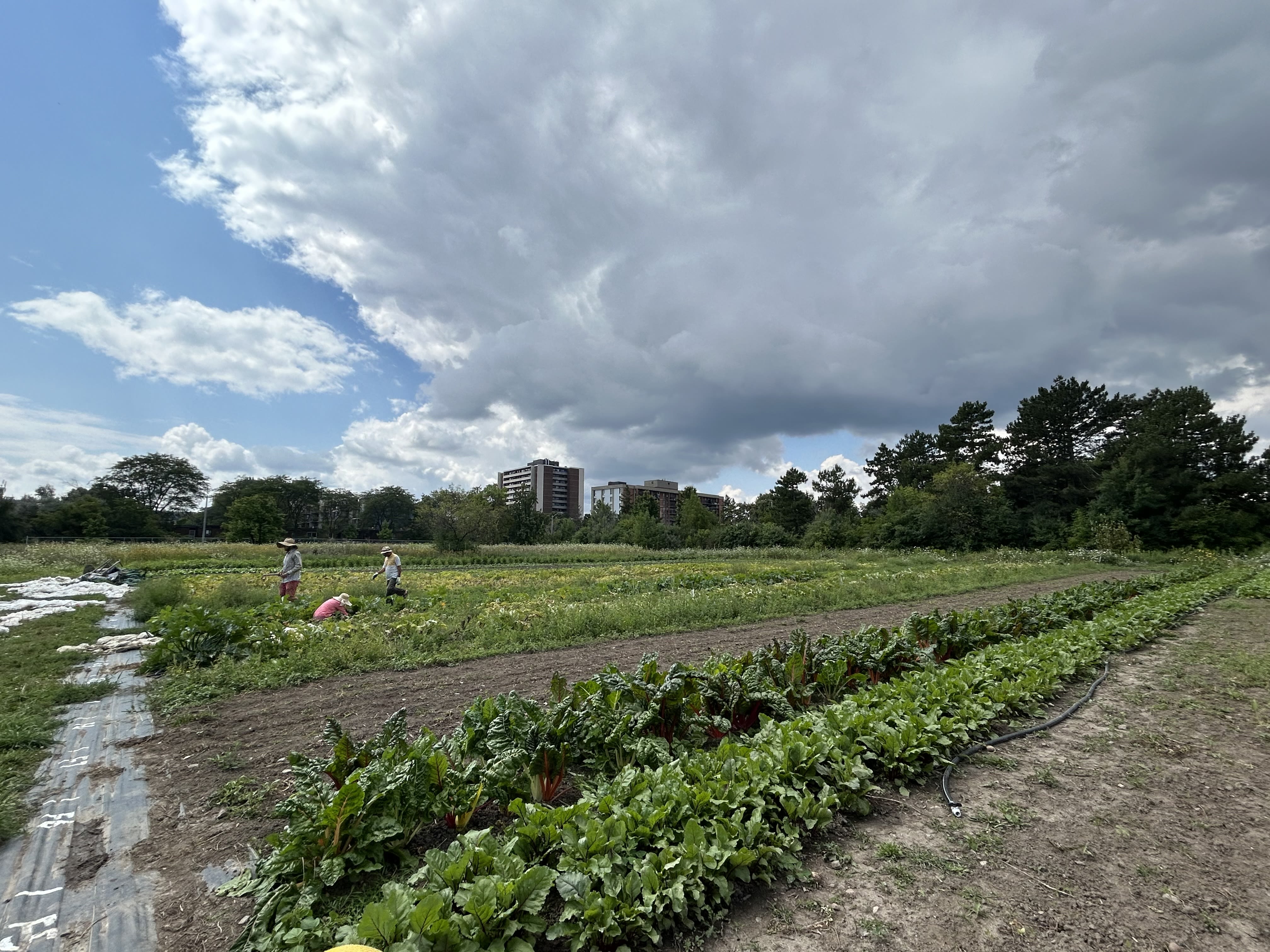
How a Community is Creating a Food Forest in the Heart of Canada's Largest City
By Izabela Jaroszynski
Even on a sunny Monday morning in August, the Black Creek Community Farm is a busy place.
A seniors group is touring the gardens, a group of teens is helping to weed and harvest, and community members are tending to their tiny plots.
This 8-acre haven, located in one of Toronto's most densely populated neighbourhoods, is an oasis of freshness. It is a sustainable, Eco-Cert certified organic community farm — created by the community to serve the needs of the community.
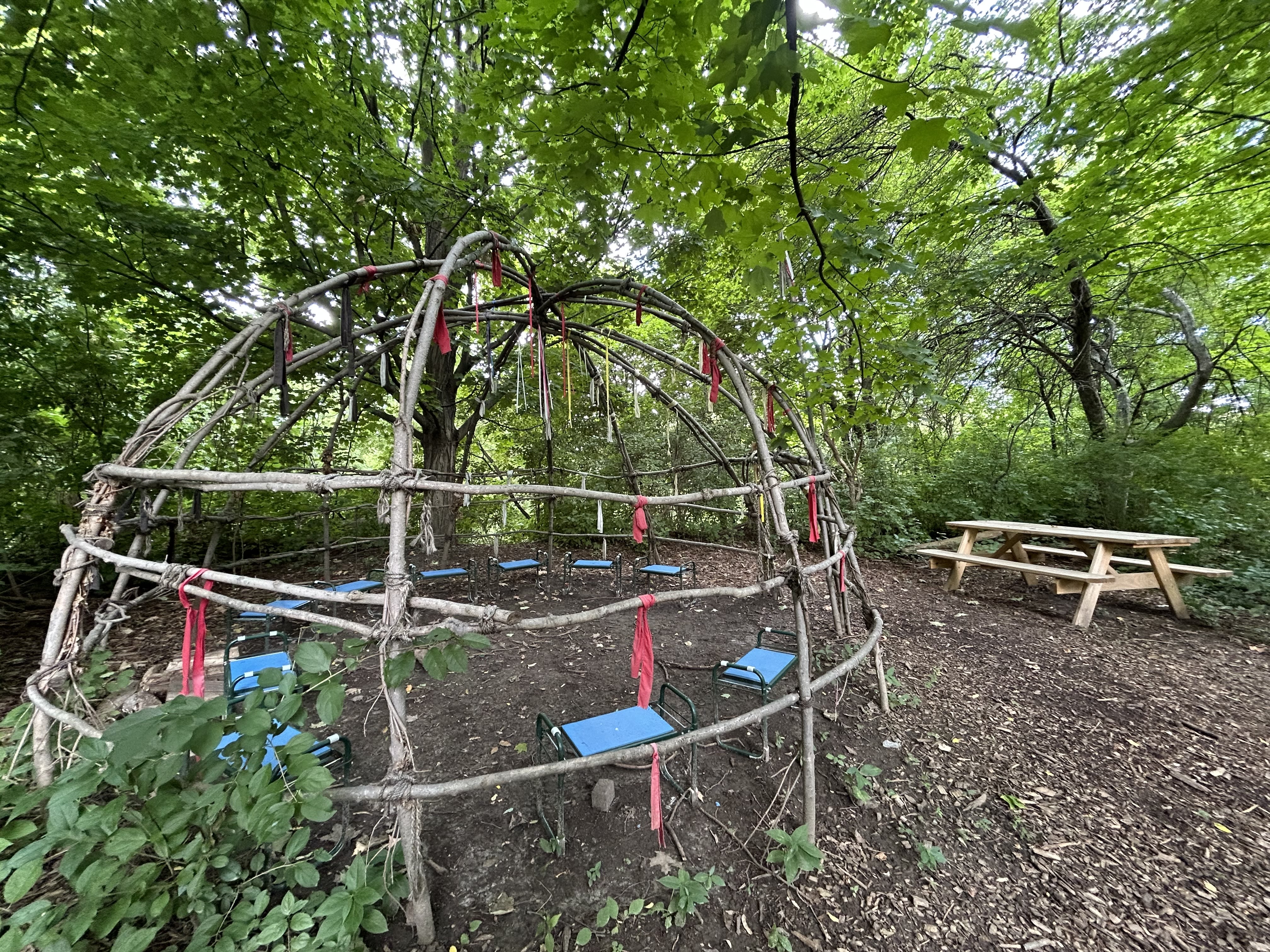
I'm here to meet with Chef Bashir Munye, who has volunteered at the farm for years and most recently worked here as the Developer of Micro-Economics, creating ways to utilize the harvest to make products that can be sold for additional revenue.
The position is a study of social enterprise and urban farming: in a limited growing space, can the farm earn enough in additional revenue to pay one member of the community a living wage?
It has been both a challenge and a joy for Bashir to create ways to utilize ingredients to their fullest, such as using garlic stalks (which are typically discarded) in the wood-burning oven to create a smoked garlic salt.
"I feel so lucky to be here and be learning from all this knowledge we have in our community," he said.
In the indoor kitchen space, Bashir shows me his stash of frozen hot peppers — I've truthfully never seen so many varieties — that will soon be made into hot sauce, as well as edible flowers that are being dehydrated and will be made into tea.
"Food for consumption and food as medicine," he tells me.
Outside, we tour the chicken coop, the medicine wheel where Indigenous plants such as tobacco are grown and available for First Nations members to harvest, and the greenhouses that grow tomatoes, peppers and specialty crops, like callaloo and bitter melon.
"We grow things based on success from previous years, what we've been able to grow, but also what the community wants to see," Bashir says. "We want to ensure the community has access to things they need."
Visitors are also welcome. The farm is accessible by public transit and has a weekly farm stand during the growing season. In the fall, there is the annual Dinner at the Farm, a fundraising culinary event with live music and delicious food.
The farm also hosts community events that are growing in popularity, such as their annual farm festival that drew in 1,000 people this year, and staff are continually finding ways to reimagine the space to serve the neighbourhood. One of the challenges, Bashir says, is breaking down the perception that this is a posh space where organic food is sold for a premium.
Listen to Bashir speak about this misconception:
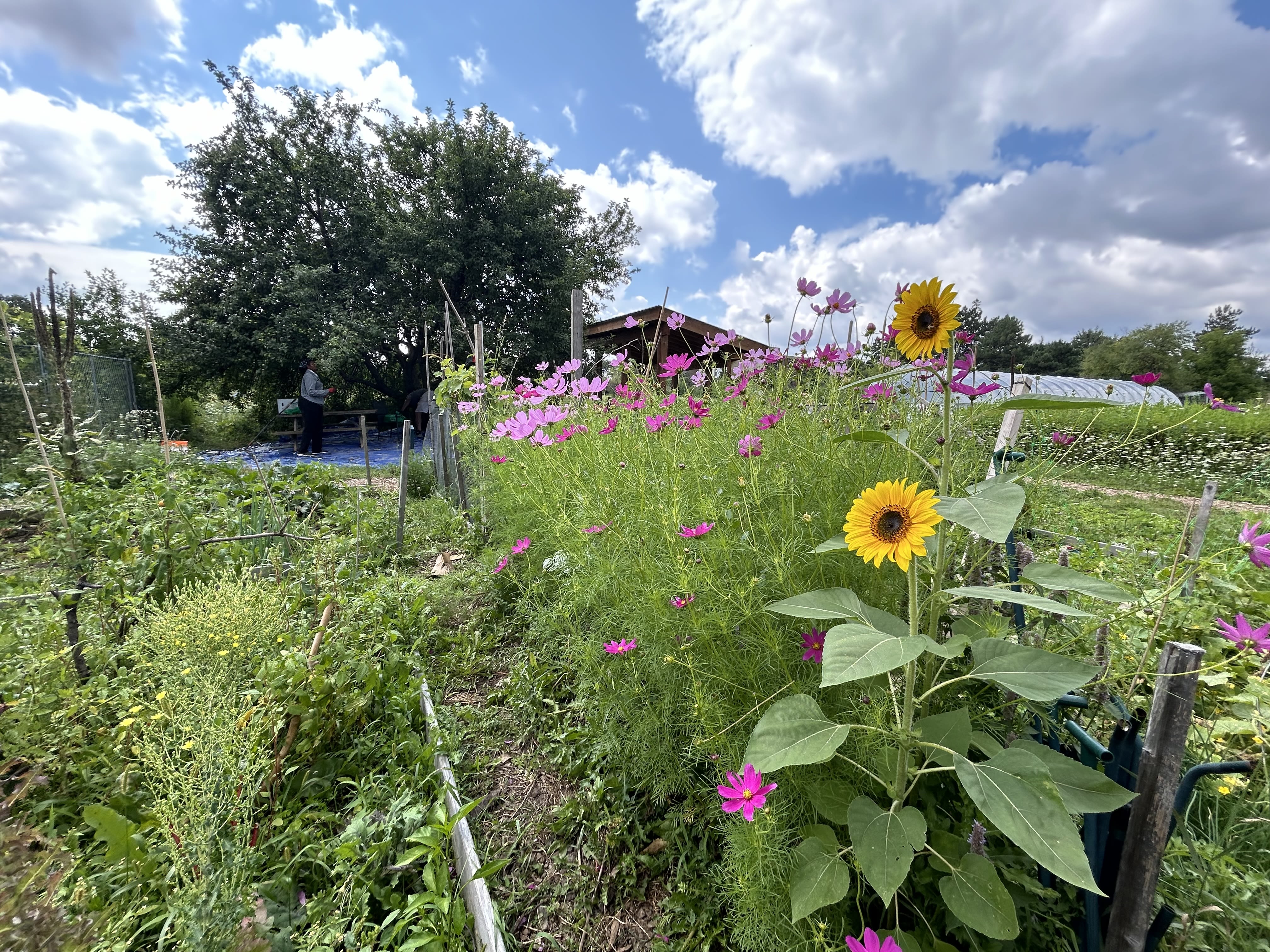
Although many of the fruit and vegetables grown at Black Creek reflect the cultural diversity of the neighbourhood, the farm is rooted in Indigenous practices, Bashir says.
"There are different Indigenous groups that inform our knowledge base," he tells me. There are gardens and spaces specifically allocated for Elders and other spaces where learning can take place and land knowledge can be shared.
It is a balance of growing ethnic foods that make everyone feel included and respecting the biodiversity of the Indigenous land on which the food is being grown.
Bashir came to the culinary world slowly, learning first to appreciate quality ingredients and good food from his mother. Born in Somalia, Bashir grew up in Italy where he attended a boarding school and travelled extensively with his mother, trying cuisines from many parts of the world.
While he always appreciated good food, Bashir didn't step inside a kitchen until he arrived in Toronto and lived with his bachelor uncle.
"The only things he knew how to cook were boiled hot dogs and eggs and open a can of tuna and the rest of the time was ordering pizza," Bashir remembers with a laugh. "I just couldn't live with that so I started to do a little bit more cooking."
Eventually, Bashir enrolled in a culinary youth training program at the local YMCA.
"As soon as I spent the first week there, I was hooked," he said. "I felt a sense of belonging, like I've found my people."
He initially worked in a few Italian restaurants around the city, but it was a stint at a Roncesvalles eatery that hired at-risk youth that ignited a deeper passion within him.
"It was the first restaurant that I felt was driven by purpose," he said. "And I realized at that moment in my life that I can do anything as long as there is a purpose behind it."
This realization is what drives Bashir's life work around decolonizing food systems, and it is also evident in his commitment to the Black Creek Community Farm. Here, every crop, every community space and every decision made reflects a sense of community and meaningful impact.
Embrace Canada with Landsby
Landsby creates unique and immersive experiences that not only provide travellers with purposeful and enriching trips but aim to positively impact the communities being explored.



